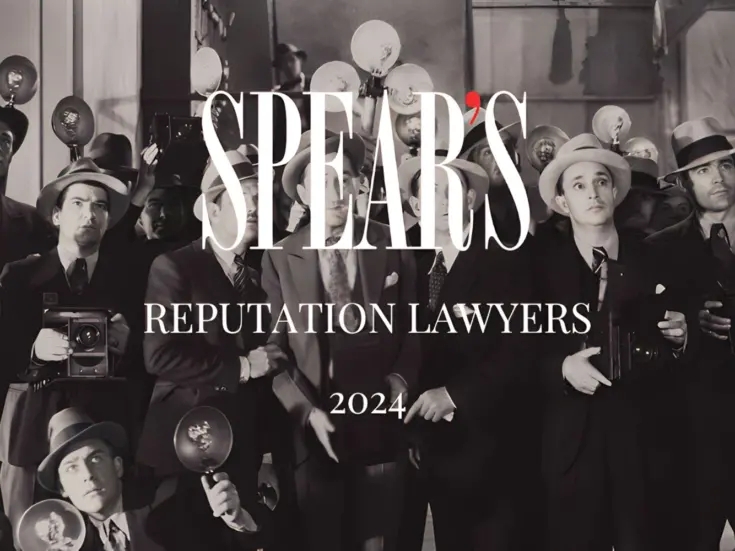
The New Black
Is it possible to whitewash a besmirched reputation? Edward Amory believes that for the disgraced peer and former media mogul Conrad Black, rehabilitation is a bridge too far
THE HIGH WATER mark of Conrad Black’s domination of a certain section of London society was the party he gave for Boris Johnson, who was then editor of The Spectator.
A hundred-plus cross section of media and political London sat down to dinner in Conrad’s modest Kensington townhouse. The room was dominated by life-sized cut outs of Boris, there were tiny Borises on every table (I think I still have mine somewhere) and at the end of the evening we were serenaded by a cabaret act who performed a song specially written about Boris.
It was over the top, a lot of fun and marked a moment in which Conrad dominated — intellectually, commercially and politically — the world around him.
Since then, of course, his life has taken a different path. He spent a number of years in prison in America, lost all his newspapers, most of his money, nearly all of his houses and a substantial proportion of his friends. It was a very long drop for a man who must have felt that he was nearly at the summit.
I don’t, in this column, intend to get into the issue of whether or not Conrad was guilty. He says he wasn’t, the American justice system disagreed. Part of me believes that Conrad, like many MPs at the time of the expenses scandal, found himself on the wrong side of history, as the rules which govern our behaviour changed and he failed to keep up.
Like the MPs, Conrad was not, when confronted with evidence of his failings, an especially sympathetic figure. But after years in an a US prison, I think many of us would consider that he has paid whatever debts he owed to society.
That, however, is not enough for Conrad. He wishes to be rehabilitated. He has written a book about his experiences, given several interviews, appeared on Have I Got News for You and expressed a desire to return to his seat on the red benches of the House of Lords. He is bidding, in London at least, for a return to some semblance of his social and political position.

This is a bold programme, as you might expect from Lord Black, but does he stand a chance? Is it possible to return from reputational catastrophe? Where, if at all, is to be found the point of no return?
Conrad Black
IN THE PAST, in Britain, those in public life who fell from grace faced a steep and rocky road to rehabilitation. John Profumo spent half a lifetime working tirelessly for charity in the East End after he was revealed to be sharing the favours of Christine Keeler with the Soviet naval attaché.
These days, public figures expect their recovery to be more rapid. Jonathan Aitken, the politician who went to jail for perjury after lying to a court, has returned, at least partially, to public life. He found God in jail, and wrote a book, Porridge and Passion, which was serialised in several newspapers, describing how humble he had become.
He later chaired a report on prison reform for a think-tank set up by the then-leader of the Conservative Party, Iain Duncan Smith. His tactic amounted to rehabilitation by reclaiming the narrative — if you write the best version of your story, that’s the one history will remember.
Others have taken a more public route. Neil Hamilton, who lost his ministerial career, parliamentary seat and all his money over the cash-for-questions affair, decided to rehabilitate himself through the media. Together with his wife Christine, he appeared on Have I Got News for You, at the end of which he was handed his programme fee on air in a brown envelope.
Christine later came third in I’m a Celebrity, Get Me Out of Here. Their approach could be summarised as rehabilitation by humiliation.
CONRAD, WHO NEVER does anything by halves, appears determined to combine both rehabilitation themes, having both written a book and appeared on HIGNFY. But there is a difference. Jonathan Aitken was prepared to admit to his mistakes, but Conrad denies having made any. And while Neil Hamilton was prepared to become a figure of fun, Conrad is certainly not.
More crucially, however, he wants a different kind of rehabilitation. Aitken and Hamilton, both politicians, wanted to restore or at least resurrect their reputations with the public. Conrad was never really a public figure and doesn’t, I suspect, much care what most people think.
What he would like to do is return to his position in London life, and that position was as much dependent on his wealth and ownership of The Daily Telegraph as it was on his personal moral standing. For him, the past is another country, and his passport may have been revoked.
But for those who wish to rehabilitate themselves purely in the public eye, the outlook is positive. Modern society has short memories, and with a few exceptions all manner of transgressions will be forgiven. There is, nearly always, a way back.
Read more by Ed Amory
Don’t miss out on the best of Spear’s articles – sign up to the Spear’s weekly newsletter
[related_companies]







